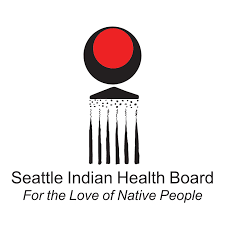Grantee: Seattle Indian Health Board
Timeframe: July 2020 – June 2023 | Total Amount: $600,000
Year 1: July 2020 – June 2021. Amount: $200,000
Year 2: July 2021 – June 2022. Amount: $200,000
Year 3: July 2022 – June 2023. Amount: $200,000
This project addresses disparities in access to TIM services. The absence of third-party reimbursement or other funding mechanisms is a primary barrier to AI/ANs accessing culturally-attuned TIM health care. Access to TIM is essential to improving health outcomes and reducing health disparities. This project aims to address this access disparity by working toward policy changes that will create sustainable funding streams for TIM service delivery, thereby achieving long-term impact on health and wellbeing for AI/ANs.
The historical and ongoing trauma and oppression of the AI/AN population at the root of health disparities have been compounded by a medical system that fails to recognize the value of or support access to TIM in any meaningful way. This is true despite demand from the AI/AN community for TIM services. Increasing access to TIM for a significant number of AI/AN individuals will improve health outcomes and reduce disparities for this population. Until health plans recognize TIM as a reimbursable service, SIHB will not realize the significant potential of TIM to address health outcome disparities.
SIHB will implement the following advocacy activities during the project year.
With Managed Care Organizations (MCO)s:
- Meet with decision-makers at Washington State’s five MCOs to gain a commitment from at least one MCO to pilot a limited availability risk pool (first preference) and/or to develop a TIM value-added benefit (second preference) for their AI/AN clients receiving SIHB services.
- Prepare SIHB’s internal systems for participation in the pilot project, including the development of protocols, processes, and communications.
- Provide technical and logistical support to the participating MCO(s) in the development of a pilot limited availability risk pool project.
- Integrate any newly negotiated value-added benefit opportunities into SIHB’s billing systems.
- Communicate with SIHB’s patients and the broader AI/AN community about eligibility for the pilot project and opportunities through a new value-added benefit.
- Participate in quarterly Tribes-MCO meetings to discuss issues regarding managed care services, coverage, and payment to tribal and urban Indian health organizations.
With Washington State agencies and policymakers:
- Work through existing policy workgroups including the Governor’s Indian Health Advisory Council (GIHAC), HCA’s Monthly Tribal Meeting (MTM), and the American Indian Health Commission (AIHC) to (1) evaluate the pros and cons of applying for a Section 1115 Medicaid Transformation waiver vs. 1915(b) waiver for the purposes of designating TIM services as Medicaid billable in Washington State, and reach a recommendation for which process to pursue; and (2) lead development of the waiver proposal (in the following year).
- Provide leadership in existing policy workgroups and provide technical and data support as needed.
- Work through the AIHC to educate state legislators, and Governor about the need for and benefits of paying for TIM services.
About Our Grantee
Seattle Indian Health Board
Seattle Indian Health Board (SIHB) is a nonprofit health center with a mission to advocate for, provide, and ensure culturally appropriate, high-quality, and accessible health and human services to American Indians and Alaska Natives (AI/AN). They envision a time when all AI/ANs have healthy and successful lives.
SIHB offers a full range of medical, dental, pharmacy, and behavioral health services at their main clinic location in Seattle’s International District; also provides Traditional Indian Medicine (TIM), nutrition and WIC, diabetes management, and a range of human services including SIBH’s elders program, youth program, domestic violence & sexual assault program, homelessness investments, and case management.
